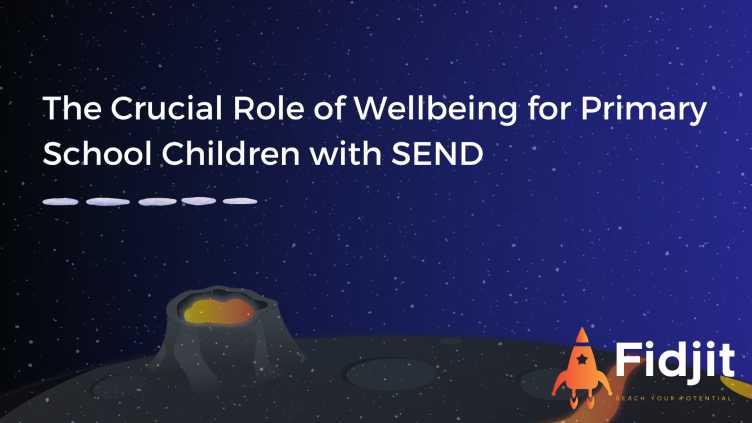Blogs
Learn what's new, ongoing and coming next
The Crucial Role of Wellbeing for Primary School Children with SEND

Ensuring the wellbeing of primary school children is a paramount concern for educators and parents alike. However, when it comes to children with Special Educational Needs and Disabilities (SEND), the importance of good wellbeing takes on even greater significance. In this article, we will delve into why good wellbeing is so crucial for primary school children with SEND, and how it can have a profound impact on their overall development and learning experience.
Understanding SEND
SEND encompasses a wide range of conditions and challenges that affect a child's ability to learn and thrive in a conventional educational setting. These can include learning disabilities, communication disorders, physical disabilities, and more. Navigating the educational journey can be particularly challenging for these children, making their emotional and mental wellbeing all the more vital.
Emotional Stability and Learning
Children with SEND often face unique academic and social challenges, which can lead to increased stress and anxiety. When their emotional wellbeing is neglected, it can hinder their ability to learn effectively. A stable emotional state is essential for cognitive development, as it allows them to focus, engage, and retain information. By prioritising their emotional wellbeing, we create an environment where they can be more receptive to learning.
Building Self-Esteem and Confidence
Positive self-esteem and confidence are key building blocks for any child's success, but they are especially critical for those with SEND. These children may struggle with feelings of inadequacy or frustration due to their challenges. By fostering their emotional wellbeing, we help them build resilience, self-assurance, and a belief in their abilities. This, in turn, can have a significant impact on their academic progress and overall life satisfaction.
Improved Social Skills
Good wellbeing in primary school children with SEND can facilitate the development of vital social skills. By creating a comfortable and secure environment, this enables everyone within the school to understand and facilitate neurodiverse conditions.
Reduced Behavioural Challenges
Children with SEND may sometimes exhibit challenging behaviours as a way to communicate their needs or frustrations. When we prioritise their emotional and mental wellbeing, we equip them with better coping mechanisms and communication skills. This, in turn, can lead to a reduction in disruptive behaviours, creating a more positive and productive classroom environment for all students.
Enhancing Parent-Teacher Collaboration
Promoting wellbeing for children with SEND involves a collaborative effort between parents and teachers. When educators prioritise a child's emotional needs, it fosters stronger connections with parents. This collaboration is essential in tailoring support and strategies that work best for the child, ensuring a more holistic approach to their education.
At Fidjit, we have developed our platform to support all children within primary schools, however, we have specifically designed for students with SEND and SEMH. It's the perfect tool for engaging children who may be having a difficult time with their education journey.
Book a call with our team today to see how we can help your school.
Latest Posts
Surrey SEND Conference: A Platform for Collaboration and Innovation
10/7/2023

Connecting and Innovating at Surrey SEND Conference:
On the 23rd of J...
Introducing Fidjit: Celebrating Every Child's Unique Abilities in the World of SEND
10/7/2023

After three years of hard work and dedication, we are thrilled to announce the launch of Fidji...
The Crucial Role of Wellbeing for Primary School Children with SEND
10/7/2023

Ensuring the wellbeing of primary school children is a paramount concern for educators and par...
.png)
